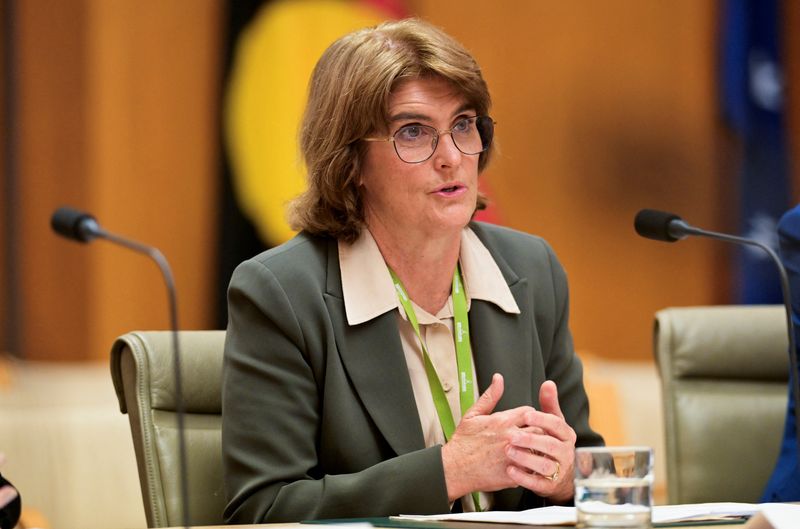Australia central bank governor reiterates rate cuts are premature
2024.09.04 23:26
SYDNEY (Reuters) – Australia’s top central banker reiterated on Thursday that it was premature to contemplate near-term rate cuts as inflation remained too high, sticking to a hawkish stance even as data showed the economy was struggling to motor on.
In a speech in Sydney, Reserve Bank of Australia (RBA) Governor Michele Bullock said bringing inflation down to the target band of 2-3% remains the central bank’s highest priority.
“If the economy evolves broadly as anticipated, the board does not expect that it will be in a position to cut rates in the near term,” said Bullock.
The hawkish rhetoric came even though data this week showed the economy barely grew in the second quarter as household consumption dragged. A monthly consumer price report had also showed headline inflation eased to 3.5% in July.
Bullock emphasised domestic inflationary pressures, such as in housing and market services, were still contributing to above-target inflation, one reason that core inflation is only expected to slow to the target band toward the end of 2025.
She acknowledged the substantial uncertainty around the bank’s central forecasts, adding that the board would respond appropriately to any change in circumstances.
However, Bullock warned that if high inflation became entrenched in expectations, the RBA would have to slow the economy even more to bring it to heel.
The RBA has held rates steady at 4.35% since last November, judging it restrictive enough to bring inflation to target while preserving employment gains.
“Ultimately, though, it is crucial to remember that our full employment goal is not served by letting inflation stay above target indefinitely,” said Bullock.
Markets are still wagering there is a 42% probability that the RBA could cut in November, in part due to expectations the U.S. Federal Reserve will ease policy this month, joining most other major central banks.
An RBA cut by December is almost fully priced in.

Bullock noted that inflation for retail goods is now close to its historical average, while gains for administered prices is only a little above its long-run average.
Rent inflation will likely remain high for some time, while labour costs growth is still strong, reflecting wage increases and weak productivity growth, she said.








